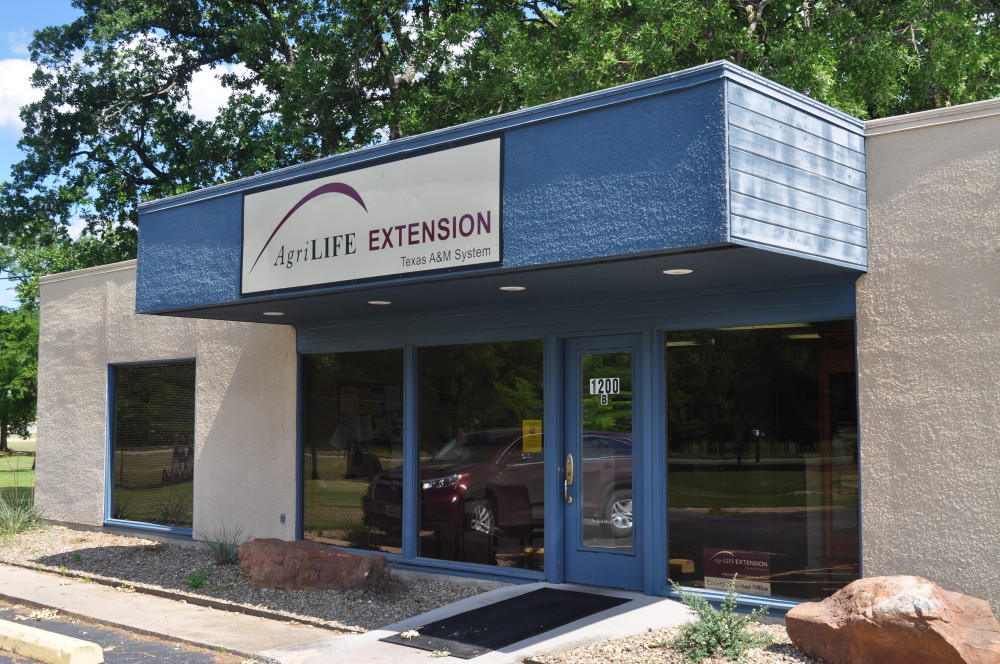By Johanna Hicks, B.S., M.Ed, Texas A&M AgriLife Extension Family & Consumer Sciences Agent
HIGH BLOOD PRESSURE: DO YOU KNOW YOUR NUMBERS?

The “Be Well, Live Well: Healthy Aging” series is well underway, and we’re having a great time exploring nutrition, food safety, meal planning and more! It seems that more and more people talk about high blood pressure. According to the American Heart Association, nearly half of American adults are living with high blood pressure (also called hypertension), yet many are unaware that they have it. In kids and teens, elevated blood pressure is becoming increasingly common, which may lead to health problems later in life. During May’s National High Blood Pressure Education Month, Texas A&M AgriLife Extension is working to raise awareness and share the most important tips o prevent or manage high blood pressure.
Knowing your risk factors is the first key prevention strategy. D r. Sumathi Venkatesh, Health Specialist with Texas A&M AgriLife Extension Service, states that other than age, genetics and a family history of high blood pressure, other lifestyle risk factors can be controlled. These include obesity, poor diet, physical inactivity, smoking, and excessive alcohol consumption. Certain medical conditions like diabetes can also increase the risk of developing high blood pressure.
Because there are no obvious symptoms or warning signs for high blood pressure, it’s often called a “silent killer.” That’s why regularly monitoring your blood pressure and understanding your results is another key prevention strategy. A blood pressure measurement includes two numbers: The top number measures systolic pressure, which is the force of blood against the arteries when the heart beats. The bottom number measures diastolic pressure, which is when the heart is relaxing between beats. A blood pressure reading of 120/80 is considered normal, while reading above 180/80 mean a diagnosis of high blood pressure.
Know your numbers could save your life. Dr. Venkatesh reminds us that chronic uncontrolled high blood pressure can damage blood vessels and result in heart attack or stroke, the two leading causes of death in the U.S. High blood pressure may also contribute to kidney disease, vision problems, and peripheral artery disease, but the good news is that high blood pressure can be controlled by taking prescribed medications and following a healthy lifestyle.
Following the Dietary Approach to Stop Hypertension (DASH) is one of the best ways to prevent or treat high blood pressure. This healthy approach includes eating plenty of fruits and vegetables plus whole grains, nuts, fish, lean meat and low-fat dairy products, while limiting added sugars and saturated fats. Sodium intake should not exceed 1500 mg per day, so it is important to check the sodium content listed on the nutrition facts label for any packaged foods. Other key prevention strategies include maintaining a healthy weight, exercising for at least 30 minutes a day, and avoiding smoking and excessive alcohol consumption. Finally, be sure to talk with your doctor if you have any health concerns or challenges. Healthy blood pressure is a target within reach.
TWOGETHER IN TEXAS MARRIAGE EDUCATION WORKSHOP
This is the last call for the Twogether in Texas Marriage Education Workshop, scheduled for Saturday, May 18, at the Hopkins County AgriLife Extension Office, 1200 W. Houston, Sulphur Springs, beginning at 8:30 a.m. The workshop will cover the following topics: Marriage Expectations, Communication, Conflict Resolution, Money Management, and Goals & Dreams. The workshop utilizes videos, group participation, couple interaction, and fun activities, as well as lunch and ongoing refreshments. A major benefit, other than great information for getting the marriage started on strong footing, is that engaged couples will receive a certificate to save $60 (state portion) when applying for a marriage license. The certificate is good for one year from the date of presented, so couples who have a winter or spring, 2020 wedding can still take advantage of the savings.
There is no cost to attend the workshop, but I do request that couples call to reserve a seat so adequate preparations can be made – 903-885-3443.
CLOSING THOUGHT
There are two kinds of worry – those you can do something about, and those you can’t. Don’t spend time on the latter – Royce Ellington
RECIPE OF THE WEEK
Blueberry Apricot Yogurt Parfait
Ingredients:
- 1/3 cup apricot preserves
- 2 cups fresh blueberries
- 2 cups low-fat Greek yogurt, plain or vanilla
- ½ cup low-fat granola
- 2 tablespoons slivered almonds
- 4 teaspoons agave nectar or honey (optional)
- 5 dried or fresh apricots sliced in half (optional)
Directions:
- Place apricot preserves in microwavable bowl. Heat for 15 seconds. Add blueberries and toss to coat.
- Spoon ¼ cup of yogurt into each glass, top each serving with 1/3 cup blueberry mixture and 1 ½ tablespoons granola. Repeat layers.
- Top with granola and slivered almonds, dried apricots, and 1 teaspoon of agave nectar or honey. Serve chilled. 4 servings.
Nutrition facts per serving: 268 calories, 5 g total fat, 5 mg cholesterol, 82 mg sodium, 46 g carbohydrate, 3 g fiber, 14 g protein
Source: Extension’s “Dinner Tonight” Healthy Cooking School






